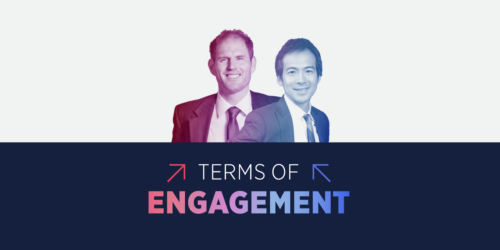Cambridge, MA – In a new paper in Political Analysis, Ben Schneer, Assistant Professor of Public Policy at Harvard Kennedy School, alongside co-authors Maxwell Palmer, Associate Professor, Boston University; and Kevin DeLuca, Assistant Professor, Yale University; present a new method for drawing legislative boundaries, the Define–Combine Procedure. Though redistricting reformers have proposed numerous solutions to the challenge of partisan gerrymandering, they all require either bipartisan consensus — or for politicians to accept the legitimacy of a neutral arbiter, such as an independent redistricting commission or judge.
Schneer and his co-authors introduce the Define-Combine Procedure (DCP) as a tool for crafting redistricting plans that reduce partisan gerrymandering without requiring bipartisan agreement or even a neutral third party. DCP works in two parts:
- One party defines a map of equal-population contiguous districts.
- The second party combines pairs of contiguous districts to create the final map.
The authors ran thousands of simulations and argue that not only is DCP mathematically feasible and effective, but politically possible. “This framework offers parties the autonomy to respect communities of interest, geographic boundaries, and other political concerns — that is, to internalize the wide range of factors that play important roles in decisions about redistricting — while nonetheless tempering the partisan biases that emerge during redistricting,” they write.
“By involving both parties but setting them in opposition to each other, rather than requiring bipartisan cooperation or independent third-party mediators, DCP offers a partisan solution to the extraordinarily partisan process that is redistricting.”
More resources, including a DCP simulator, are available at definecombine.com.
About the Authors
Benjamin Schneer is an Assistant Professor of Public Policy at the Harvard Kennedy School. His research is in American politics and focuses primarily on political representation: how citizens express their preferences, how government responds to them, and what may shape and distort these processes. His most recent papers have studied just how much of an effect the media has on the national political conversation, the role that petitioning has played in American political development, and the returns to elected office based on future earnings from corporate board service and lobbying.
Maxwell Palmer is an Associate Professor in Boston University’s Department of Political Science, a Civic Tech Fellow in the Faculty of Computing & Data Sciences, and a Faculty Fellow at the Initiative on Cities. He joined the Department and Boston University in 2014, after receiving his Ph.D. in Political Science at Harvard University. He studies study American political institutions, including Congress, electoral institutions, and local political institutions, with a particularly focus on how institutional arrangements and rules impact representation and policy outcomes. Palmer also works as a consultant and expert witness on questions about voting rights, redistricting, and representation.
Kevin DeLuca is an Assistant Professor of Political Science, Resident Fellow at the Institution for Social and Policy Studies (ISPS), and Faculty Affiliate at the Center for the Study of American Politics (CSAP). His research interests include political institutions and the political economy of media, with a focus on election laws and the role of local newspapers in politics.
About the Ash Center
The Mission of the Roy and Lila Ash Center for Democratic Governance and Innovation at Harvard Kennedy School is to develop ideas and foster practices for equal and inclusive, multi-racial and multi-ethnic democracy and self-government.
Contact
Daniel Harsha, Director of Communications and Strategic Initiatives, Daniel_Harsha@hks.harvard.edu
Sarah Grucza, Assistant Director of Communications, Sarah_Grucza@hks.harvard.edu


